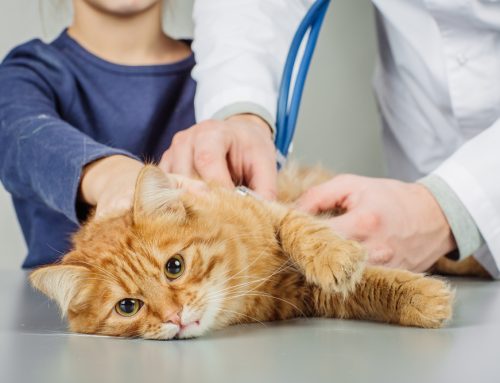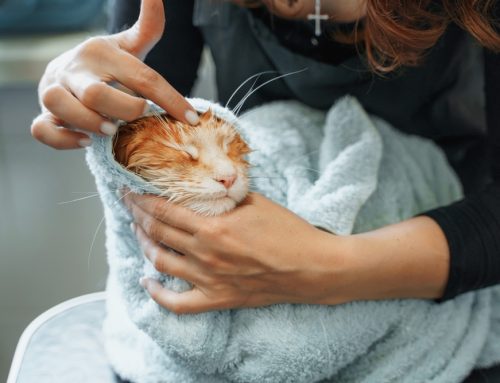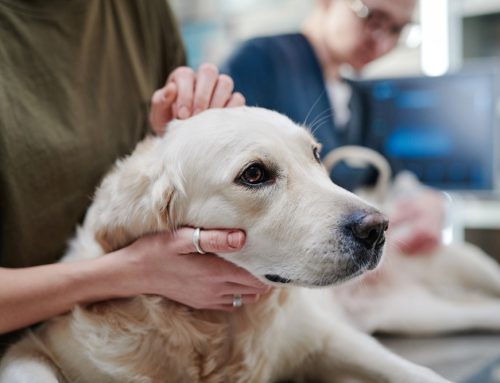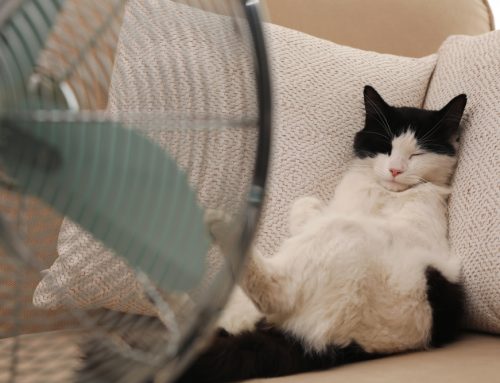Are you prepared for an emergency or natural disaster? If you are required to shelter in place or evacuate your home, you should have your family’s—including your pet’s—supplies ready to pack into your vehicle. Creating a plan ahead of time will allow you to act quickly, and help keep everyone calm and safe. Read our Lebanon Animal Hospital team’s tips to learn how to make your pet’s wellbeing part of your disaster preparedness plan.
#1: Create a pet emergency kit
A ready-to-go pet emergency kit can save you valuable time and prevent you from forgetting any of your pet’s essentials in the event you must leave your home at a moment’s notice. A backpack or rolling container ensures easy transport. Using waterproof interior containers ensures your supplies stay dry and functional under most conditions. Pack your pet’s emergency kit, and ensure you include the following:
- Up to a week’s worth of canned or dry food and bottled water
- A two-week supply of important medications
- Collapsible pet food and water dishes
- Disposable litter pan and litter for cats
- Pet shampoo or dish soap
- Waste bags
- Extra leash, tags, collar, or harness
- Lightweight pet carrier or travel crate
- USB flash drive loaded with your pet’s medical records
- A photo of you and your pet together
- Flashlight
- Blanket
- Cleaner and paper towels
- First aid kit
Ensure you regularly check your pet’s medication expiration dates and rotate accordingly. To maintain supplies freshness, replace food and water in the kit every two months. You can also have prepackaged pet emergency and first aid kits on hand, and add extra supplies according to your pet’s needs.
#2: Locate pet-friendly places ahead of an evacuation
Never abandon your pet. Before disaster strikes, plan ahead by checking with local shelters, animal hospitals, and the American Society for the Prevention of Cruelty to Animals (ASPCA) to find out which locations can or will shelter pets if you must evacuate. Ideally, you and your pet should stay together, so look into staying at a pet-friendly hotel, or with friends or family who are willing to host your whole family. During Hurricane Katrina, many people were forced to abandon their pets, and although this natural disaster occurred nearly two decades ago, animal welfare associations today continue working to ensure that people can shelter in locations where their pets are also welcome, and families can stay together in the event of an evacuation.

#3: Appoint a trusted person to care for your pet if needed
If you or your family cannot care for your pet, you’ll need to rely on someone nearby with whom you can temporarily, perhaps permanently, entrust your pet’s care. Choose this person wisely. They should be trustworthy, and capable and happy to care for your pet, ideally someone who already knows your pet, and has easy access to your home. A neighbor or nearby family member is a good choice. Before a disaster arises, you should tell this person where your emergency kit is in your home. In addition, they should be capable of evacuating your pet if you cannot.
#4: Microchip your pet
A microchip is crucial to helping reunite your pet with your family if you are separated during an emergency or disaster. Our Lebanon Animal Hospital team can quickly and easily implant your pet’s microchip during an outpatient visit, and we’ll help you register your information along with a secondary emergency contact. If the worst happens, and you and your pet become separated, a microchip permanently identifies your four-legged friend because the chip cannot fall off like a collar and tags. Authorities can scan your pet’s chip, which links to your information, proving ownership and contacting you quickly.
#5: Obtain pet rescue alert stickers
The ASPCA has pet rescue alert stickers available for free when you sign up here. Otherwise, you may be able to purchase pet alert stickers from another organization such as your local fire or police departments. You should place pet alert stickers in your most visible windows to indicate the number of pets within, so that rescue personnel can try to account for them in an emergency situation. Ideally however, because you have an emergency kit prepared, you should be able to evacuate with your pet before rescue is needed, in which case you should write, “Evacuated,” across the sticker to notify authorities that your pets are safe.
Nobody thinks an emergency or disaster will happen to them, but each year many people are displaced from their homes. Floods, fires, earthquakes, tornadoes, pandemics, and other disasters will continue, but being prepared will help you weather the storm. Contact our Lebanon Animal Hospital team for more emergency preparedness tips, for information on local animal care authorities, or to stock up on an emergency supply of your pet’s food or medications.








Leave A Comment